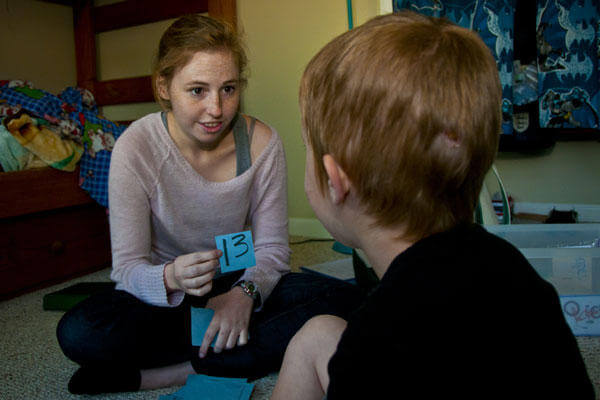All retiree and active duty Tricare users with developmental disabilities will have access to a specific therapy under a pair of new bills introduced today in the House and Senate.
The proposal expands coverage for Applied Behavior Analysis (ABA) therapy to all users with developmental disabilities. Currently, the therapy is only readily available to active duty users diagnosed with autism.
Retiree users diagnosed with autism can receive the therapy through a complicated approval process under a Tricare pilot program, due to terminate in July. Users with other developmental disabilities, such as Downs Syndrome, are blocked completely from the therapy.
"Every parent of a child with a disability wants to do everything they can to provide the best care, but for parents in the uniformed services dealing with overseas deployments and frequent moves from state to state, the challenge to access quality care is even greater," Sen. Patty Murray, a co-sponsor of the Senate bill, said in a statement. "The least we can do for our service men and women is provide quality health care for their loved ones, and this amendment ensures that promise extends to children with disabilities, too."
Military child healthcare watchdogs praised the bill as a step in the right direction.
"These kids are going to need long term care, and not necessarily care but long term educational services," said Susan Reynolds, a military child healthcare activist. "If we can help these kids let's do it."
"I'm very much in support of this bill," said Jeremy Hilton, an autism activist whose daughter is impacted by the disorder. "I hope we can figure out a way to get our kids the therapy they need."
Under the current Tricare ABA therapy policy, active duty users can receive up to $36,000 of therapy a year – or between 300 and 720 hours depending on the education level of therapist used -- as long as the provider can annually justify its need. Parents pay a cost share of between $25 and $250 per month based on pay grade.
But parents and advocates complain that those therapy caps can only cover a fraction of what many delayed children need. The new bills include no therapy caps.
The plan, if passed, is projected to cost Tricare $20 million in fiscal 2015 – a price tag that could prove to be a roadblock in an environment of Defense Department downsizing and budget cuts.
The bills are the latest in a several year battle between advocates and Tricare over ABA coverage. After a 2012 court ruling ordered Tricare to cover ABA therapy for retirees, Tricare altered its policy for all Tricare users to only allow that therapy for children with autism.
Then, in response to a measure enacted as part of the 2013 National Defense Authorization Act, Tricare made changes to the active duty autism coverage that included new usage requirements for active duty users and – relative to the previous rules – limited who could receive coverage and for how long. Those changes were quickly rescinded in response to outrage from the special needs community.
The new bi-partisan bill was introduced in the Senate by Sen. Patty Murray, D-Wash., Sen. Roy Blunt, R-Mo., Kristen Gillibrand, D-N.Y., and Sen. Marco Rubio, R-Fla. The House version was introduced by Rep. John Larson, D-Conn., and Rep. Thomas Rooney, R-Fla.
Officials with Autism Speaks, an organization that advocates for autism care, said Tricare users should urge their congressional representatives to support the bills.
"We are recommending that families reach out to their congressmen and senators and ask that they cosponsor their bills," she said. "The more awareness and momentum we build the greater the support."
Like most legislation addressing Defense Department issues, the bills will likely be wrapped later into the 2015 National Defense Authorization Act.
-- Amy Bushatz can be reached at amy.bushatz@monster.com

























